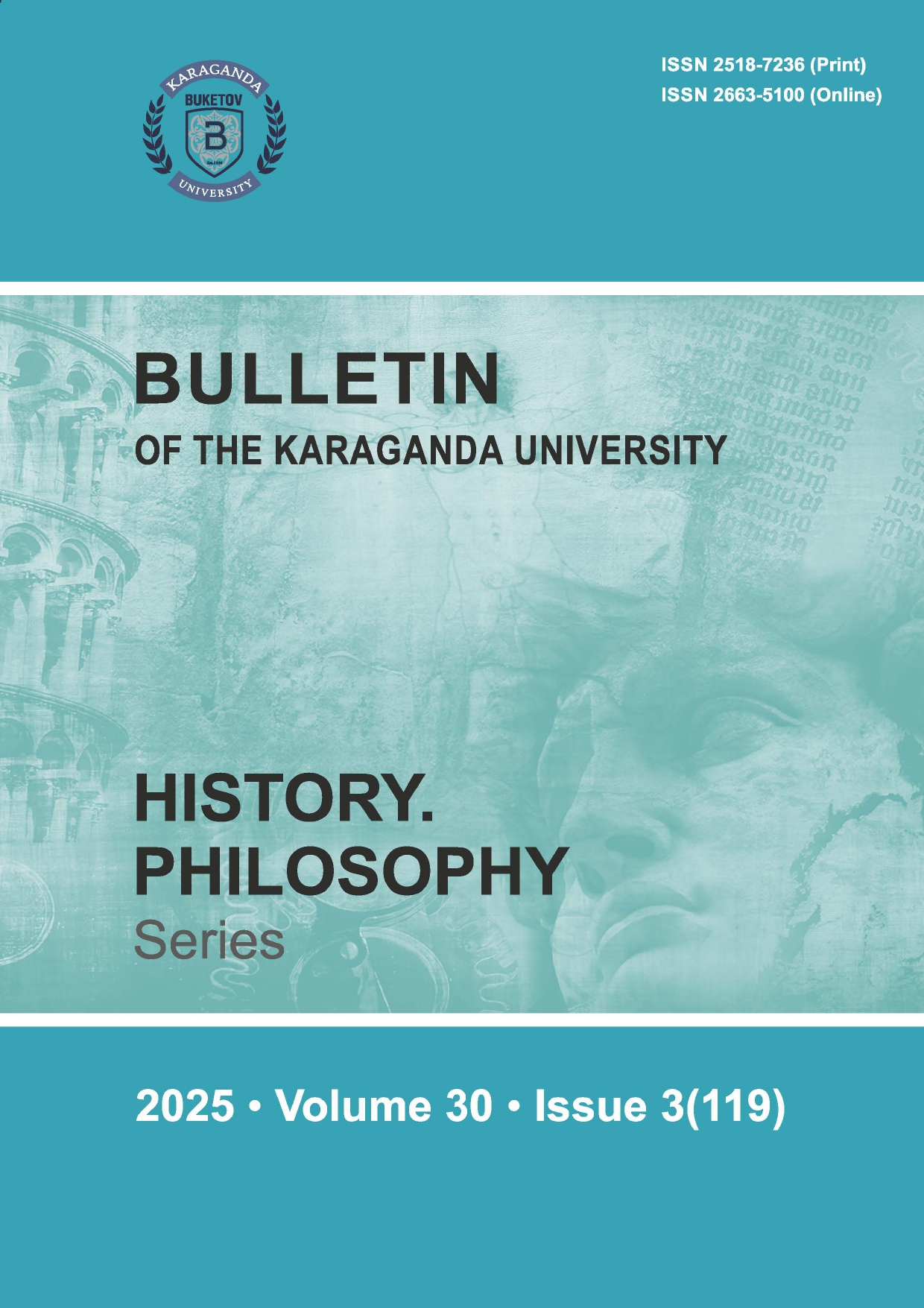National Interest as a Philosophical Category: G7 Ideals and the Strategic Identity of Kazakhstan
DOI:
https://doi.org/10.31489/2025hph3/278-286Keywords:
Kazakhstan, national, interest, strategic, identity, philosophy, recognition, civilisational, dialogue, v, hermeneutics, global, order, political, ethicsAbstract
This article proposes a new definition of the philosophical concept of national interest, considering its onto-logical, epistemological, and moral aspects. It moves beyond the realist view, where interest is reduced topower and survival, and instead highlights how identity, recognition, and narrative shape the strategic behav-ior of states. The case of Kazakhstan is taken as an example: a post-Soviet, culturally diverse, and geopoliti-cally uncertain country seeking its role in a liberal international order led by the G7. The study argues thatKazakhstan’s foreign policy is not only practical but also expressive. It reflects principles such as justice, plu-ralism, and civilization dialogue. Using insights from hermeneutics, phenomenology, and political ethics, Ka-zakhstan can be seen as a conceptual actor that reinterprets national interest through ethical engagement inglobal debates. This role is evident in initiatives like the Congress of Leaders of World and Traditional Reli-gions, multilateral diplomacy, and the “multi-vector” strategy. In doing so, the article contributes to ongoingdiscussions of international norms and legitimacy, showing the value of a plural and culturally informed un-derstanding of state activity in global politics.




